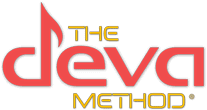Best singer foods are discussed in other posts in the Vocal Care category of this blog.
This post focuses on singer beverages, exercise and rest and is excerpted from Jeannie Deva’s eBook Singer’s Guide to Powerful Performances.
I’m not a nutritionist, but many years of experience with numerous diets and thousands of singers have brought to light a guiding principle to determine the best foods for singers. Foods that stiffen muscles or stimulate phlegm and mucous in the body and particularly in the vocal folds should be avoided by singers.
Best Singer Foods …
Foods providing proper nutrition (protein, fiber, fruit, vegetables, whole grains) are used as fuel for your body and promote general health and energy. Protein is especially important for muscle function. The primary food categories to choose from are: whole grains; juicy fruit (such as apples, melons, grapes, berries, peaches, nectarines, pears, mangos and papaya); yellow, green, red and orange vegetables; lean proteins, and nuts and seeds.
Best Singer Drinks …
Room temperature or cool (not iced) water remains the best beverage for singers. Drink spring, filtered or well water, but not distilled water. Some nutritionists say that distilled water leaches minerals from the body. There’s some controversy about the health effects of water in plastic containers. So, to be safe, filter your water into a stainless steel or glass bottle. If you live in an area that has clean, clear tap water, you are extremely lucky!
Foods to Avoid …
This may be slightly different for each singer, so use it as a guide and customize for your body. In general dairy, deep-fried or spicy foods and any food you’re allergic to will be mucous-producing. Additionally, spicy hot foods can be irritating to the muscles and mucous membranes of your voice. For some people even bananas cause phlegm, so make your own “avoid list” to steer your choices toward foods that support healthy function and vibration of the voice.
For different reasons, both hot and iced drinks prior to or while singing are included in the “avoid” list. Think about it: would an athlete put hot or iced compresses on their muscles just before their routine or competition? Ice can cause muscles to contract and heat can cause them to relax and swell. Neither of these is beneficial to the muscles in your vocal folds before singing.
Additionally, many types of teas can actually dry out the mouth and throat. Aside from hot drinks being on the “avoid” list just before or during singing, make sure you drink your tea enough hours before you perform to allow time to regain the proper level of moisture in your mouth.
Personalized Singer Diet …
Everyone is different. The “avoid” list is a guide to help you minimize foods or drinks that hinder your voice. Notice for yourself how your body reacts to different types of food and beverages; make note of what is mucous-producing or makes your vocal folds feel stiff and impairs your vocal agility. Then modify your diet and the timing of how close to when you sing you can indulge.
Note: Acid reflux can burn your vocal folds and impair your voice. This can result in a constant need to clear your throat; a thin, reedy sound; a sensation of burning in your vocal folds; and feeling like your voice is stiff and inflexible. Often this can be solved or at least minimized by simplifying your diet, eliminating acidic foods while increasing those that are alkaline, not eating within a few hours of bedtime and, most importantly, effective stress management.
Generally, alkaline-forming foods include: most fruits, green vegetables, peas, beans, lentils, spices, herbs and seasonings, and seeds and nuts. Acid-forming foods include: meat, fish, poultry, eggs, grains, and legumes.
Physical Exercise
To maintain muscle tone and organ function, regular exercise, including aerobic and weight resistance is recommended. Since singing and performing are physically demanding, routine exercise is essential. If you move around a lot on stage, or wish to, conditioning your body and your breathing is vital. This will facilitate feeling more comfortable on stage without getting out of breath if you want to dance or move about the stage with ease.
Learn more indispensable vocal care and performance know-how in Jeannie Deva’s eBook Singer’s Guide to Powerful Performances.








Leave A Comment